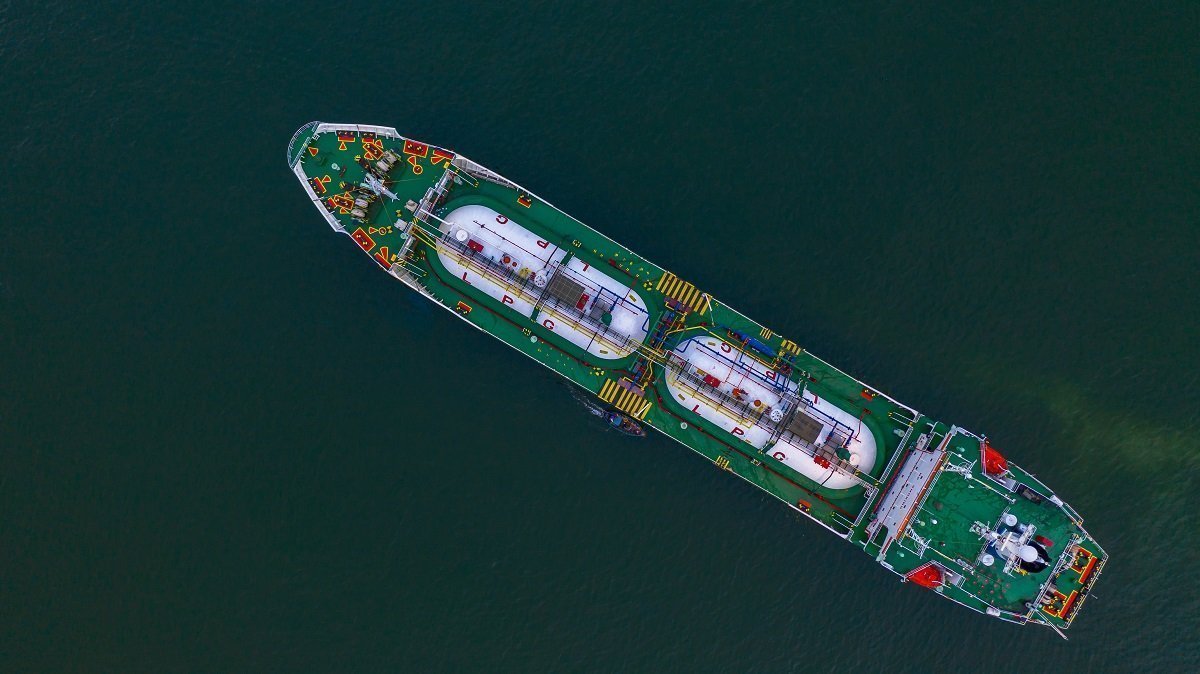Shipping is the lifeblood of the international economy. Whatever the product and service from manufacturers to consumers, transportation and logistics are some of the most important parts of the business. According to the International Chamber of Shipping, shipping within the European Union alone accounts for 80% of imports and exports on a volume basis.
As a result of the measures taken within the scope of global warming and climate change, which are the greatest dangers faced by humanity, maritime transport came under scrutiny like other sectors.
The International Maritime Organization (IMO) estimates that shipping accounts for about 3% of global greenhouse gas emissions. Given current growth rates, transport could represent 10% of all global emissions by 2050 if appropriate action is not taken.
Today, humanity and global professional organizations are looking for new solutions and importance in the face of this great danger. The maritime industry is looking for alternative fuels for the fuels with high emission values that it is currently using. LPG, LNG, CNG, Hydrogen, Ammonia, Methanol, Electricity, and Nuclear energy are examined by experts as alternative fuels that can be used on ships.
Now we will talk about LPG;
Alternative marine fuel LPG
(For more detailed information on LPG, you can read our “What is LPG” article.)
A study led by researchers at the Korea Maritime and Ocean University shows that the use of LPG can reduce air pollution, is cost-effective, and is viable regardless of ship size.
According to research published in the Journal of Cleaner Production, LPG could open the door to ships with zero carbon emissions. It can be used as a fuel that can bridge the transition to zero-carbon ships. However, there is little practice in the maritime industry for the use of LPG and there is no certification for LPG-powered vessels.
In the study, when the annual fuel consumption costs and the reduction in air pollutants by using LPG fuel in ships registered in South Korea, which has high feasibility of converting to LPG fuel, are analyzed quantitatively, annual fuel consumption for all ships is 7.5-10.4% and fuel cost is 8%. It was observed that it decreased by .8–25.9. In addition, according to the data obtained in this study, it was determined that carbon dioxide emissions decreased by 10-14% and nitrogen oxide emissions by 14-16%.
The World LPG Association stated that LPG will play an important role in the International Maritime Organization (IMO) 2050 regulation.
In light of all these, LPG can be an alternative fuel for ships. Transported and stored as a liquid but consumed as gas, LPG can provide cleaner, lower-emission maritime transportation than many alternative products currently available. For example, compared to Heavy Fuel Oil (HFO), which is commonly used in marine machinery, LPG shows a 97% reduction in SOx, a 90% reduction in particulate emissions, and a 20% reduction in NOx, and LPG can reduce greenhouse gas emissions by approximately 25%.
These benefits are already recognized, with LPG being the most widely accepted alternative fuel in the world today.
 Preferable
Preferable
LPG has a significant advantage over other options for several reasons. First, most countries in the world already consume LPG in a wide range of applications. This enables fast and low-cost LPG refueling at any port on the planet where the product is available. Globally, more than 1,000 plants are currently considered to exist, significantly reducing the barrier to fuel switching.
The IMO directed target is to reduce the carbon intensity of shipping by 33% (compared to 2008) by 2025, 40% by 2030, and at least 70% by 2050. LPG could be a way to achieve these goals. LPG has many advantages to reach the 2050 targets. It provides many of the positive benefits of natural gas, with zero methane leakage and much lower infrastructure costs.
It is possible to convert existing marine machinery to LPG, and the use of LPG, which is used daily by people all over the world, with known technologies makes it more advantageous than LNG today.
Compressing, storing, and shipping LPG is comparatively less costly than LNG. LPG-powered vehicles have already been used in light commercial vehicles and personal vehicles in some countries for a long time. The cost of batteries and other factors required for electric propulsion makes electricity far from being a solution for ships. While other fuel options such as hydrogen and ammonia undoubtedly represent important future options, they are currently unattractive due to technical difficulties.
Considering many factors in the maritime industry, LPG may be the fuel of choice for many ships and operators.
LPG supply points can be established with relatively low investments. LPG can be applied with accessible technology for all economic segments. The fact that diesel machines can be used with LPG consumption can put LPG at the top of the list for ship owners and operators in search of alternative fuels.
Undoubtedly, the most important feature of LPG compared to other hydrocarbon fuels is that it does not pollute the sea during a leak. LPG does not harm the soil and the sea. As humanity, we have witnessed the extent of the destruction in the region many times before when oil spills into the sea, and you can read our articles on this subject.
We should not forget that we aim to reduce emissions in the transition to alternative fuels, as in all sectors that create emissions, and that we must protect the world in all areas.
Every day, dozens of different sectors are trying to produce new ideas and solutions against climate change. Experts, researchers, and practitioners volunteering to protect our world are the most important carriers of this struggle. In this period when new transformations and solutions against climate change and global warming are being discussed, we must volunteer as never before and act together for a cleaner and healthier tomorrow by putting aside our selfishness.
In the search for alternative fuels, we should aim to protect the world we live in before the profits and opportunism of certain people and to pass it on to future generations in the cleanest way we can.
Below are the helpful resources used in the creation of the article.
https://www.wlpga.org/wp-content/uploads/2021/06/LPG-for-Marine-Engines-2021-compressed.pdfhttps://www.wlpga.org/wp-content/uploads/2019/10/LPG-Bunkering-2019.pdfhttps://www.dnv.com/expert-story/maritime-impact/LPG-propulsion-BW-LPG-takes-pioneering-step.html#https://www.sciencedirect.com/science/article/abs/pii/S095965262104124X


